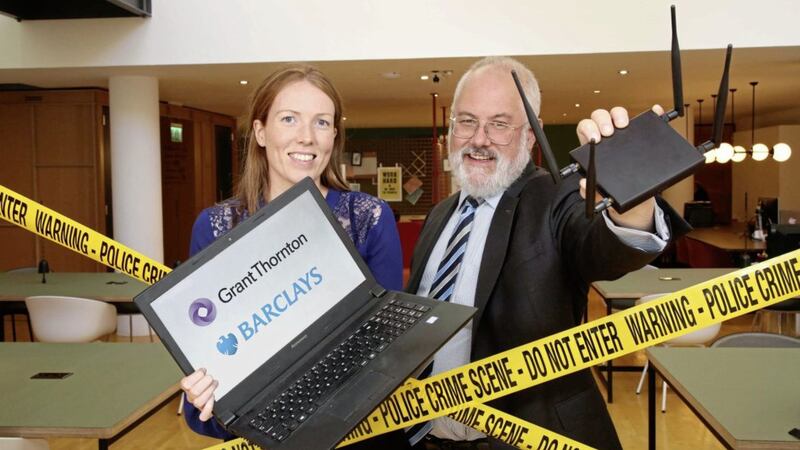CYBER criminals are now operating more sophisticated business models than the firms they are trying to exploit according to leading experts.
The stark warning comes ahead of a breakfast seminar on cyber security which business advisory firms Grant Thornton and Barclays are set to host next month.
‘Cyber Security: Staying Safe’takes place at Barclays Eagle Labs in Belfast on October 12 and will focus on the race to safeguard individuals and businesses against cyber-attack as new digital technology makes it easier for criminals to commit fraud.
Andrew Harbison, director of forensic and investigation services at Grant Thornton, Martyn Lade, who works in Barclays’ digital security team, and the Police Service of Northern Ireland’s Alistair Burns will be the guest speakers at the event.
“Cybercrime is an absolutely huge industry globally and those involved in it operate what really are large ‘companies’ formed with the aim of committing fraud," Mr Harbison explained.
“The image many people have is of a teenage hacker working alone, but it’s not like that. These are sophisticated businesses and those involved are highly organised - they have research and development departments, and run profit and loss accounts.
“More often than not, their targets are not big corporations, but rather small firms. For example, we’re increasingly seeing small accountancy and legal practices targeted so that fraudsters can obtain personal information on their clients.
“In 2015, it was estimated that cybercrime cost the economy in Northern Ireland around £100 million, but we believe the current figure is significantly more than that.”
Joanna McCardle, relationship director, Barclays Northern Ireland, said the digital age is opening up new ways for criminals to commit fraud
"These cyber-criminals are employing ever-more sophisticated attack methods, which increasingly focus on corporate businesses. These attacks can vary according to the type of business targeted and the criminals are quick to find new ways to work around the banks’ responses."
"Barclays research earlier this year revealed that half of all recorded crime in the UK is cyber related, with a quarter of the individuals surveyed having experienced some form of cyber fraud in the past three years. The threat is real and it is a worrying one for businesses.
“By actively raising awareness of the potential vulnerabilities and by sharing simple checks and measures to protect against possible attacks, we take a differentiated approach to cyber-security, rather than just rolling out a ‘one size fits all’ solution."
For more information, or to book a space at the breakfast event, contact Natasha Agnew at natasha.agnew@ie.gt.com or 028 9587 1123 or Julie Gray at julie.gray@barclays.com.







